Home » Literature Archives » Japan, Zen, and WWII
JAPAN, ZEN, AND WWII
By Ming Zhen Shakya
-- WWII song about a "Sky Pilot" (chaplain) who replaced a fallen gunner.
Words and Music by Frank Loesser.
Too often writers try to find what they're looking for the way Emmett Kelly's clown looks under the street lamp for the key he dropped at his front door: the light is better there. If it occurs to them to comment on a topic that has only a degree or two of separation from a subject with which they're already familiar, perhaps expertly so, they simply draw a line from the topic to that conveniently lit subject. And then from within the boundaries of their own "more illuminated" special interest, they describe what they are sure is on the other side of that locked and darkened door.
For the last dozen years or so, the belligerence of Japanese Buddhists during World War II has been a topic that refuses to go away. Critics, themselves Buddhist, claim that not only was Japan's Buddhist population eager for war, but even Zen masters actively supported Japan's military ambitions. They insist that the precept of ahimsa (non-violence) prohibits a Buddhist from participating in combat and that engaging in or encouraging any kind of violence is as unpardonable among the laity as it is unthinkable among the clergy. The critics attribute this abandonment of Buddhist principles to a "non-Buddhist" phenomenon: the wildly popular Hagakure and its revival of the Samurai's code, Bushido (the Way of the Warrior). At least, then, for the war and pre-war periods, the Japanese were Bushidists, not Buddhists.
Much is wrong with these glib appraisals.
There is an inherent arrogance in the notion that Buddhists are above warfare. It's as if we're saying that other religions may have commandments against killing, but the measure of these religions' inferiority consists in their routine disregard of such commandments. It is easy for a cloistered Buddhist to protest, "We do not harm living beings. We are vowed to save them." But citizen-Buddhists, we who live and work and send our children to school and in all ways enjoy the benefits of civilized government, cannot make such a protest. None of us would be worth the name of our religion if, in times of national emergency, we used our lofty principles to exempt ourselves from military service or support, staying profitably safe at home, while denigrating persons of "inferior religions and dubious ethics" who do go out and battle to preserve our way of life.
It might be a good time to quote the Dalai Lama's November 7, 1950 address to the United Nations, following the Chinese invasion: "We can assure you, Mr. Secretary General, that Tibet will not go down without a fight." Tibet's brave army of monks did fight, but as expected, they quickly lost.
Some critics, citing scriptures from the Pali Canon, supposed that Japan's self-destructive militarism was karmic punishment for crimes committed in a previous epoch.
First of all, Zen Buddhism is not orthodox Buddhism. It has no Jainist influences or provisions for karmic retribution. Zen, a combination of Buddhism and Daoism, has traditionally held itself "outside" most Buddhist scriptures; but it has never rejected Daoism's literature and has actually adopted much of it as its own. The lines: "How wonderful! How mysterious! I chop wood. I carry water!" is Daoist. The monk who, when pursued by a tiger, hangs from a cliff and tastes a strawbery is also Daoist. The man in a rowboat who crosses a river and collides with an empty boat is Daoist. The examples are endless.
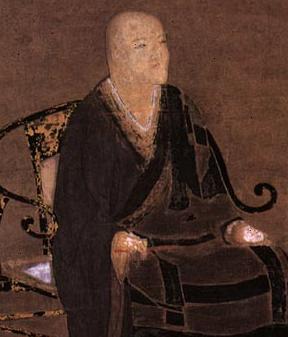 Dogen Zenji
Dogen Zenjihttp://en.wikipedia.org/wiki/Dogen
Also, though the critics insist that there is no connection between Bushido and Zen, the fact is that both disciplines, as Wushidao and Chan, originated in China; and from the time Bodhidharma introduced Chan, they have been connected. Over the centuries, different principles have been emphasized, but the two disciplines remain essentially unchanged. Both were fully formed and mature when they entered Japan. A quick look at dates may help to clarify this. There is much history between the time that Joan of Arc was burned at the stake and Neil Armstrong set foot upon the moon. 1431 to 1969 is 538 years. There is even more history between the time that Bodhidharma brought Chan to China and the time that Dogen Zenji took it to Japan. 520 to 1225 is 705 years.
Historically, in China, Wushidao was first outlined sometime in the millennium before the Christian Era when justice was more or less the jurisprudence of mercenaries. The sketchy accounts suggest the formation of autonomous bands of men, mostly commoners - much like Robin Hood's Merry Men - who excelled in the use and the manufacture of swords and other weapons. Collectively, they were called Xia, freelance swordsmen and champions of the lowly. Individuals, functioning as itinerant paladins or knights errant, were Youxia, a type of Lone Ranger whose exploits became the stuff of legend. Though to many of their contemporaries the Xia were closer to Hell's Angels than they were to Merry Men, they did operate within the constraints of a code of conduct which emphasized bravery, integrity, reliability, and skill with weapons. More significantly, the code extolled the "virtues" of revenge and of supporting each other in various vendettas. Indeed, their camaraderie was such that the degree of loyalty they pledged each other often exceeded the loyalty they extended to their employer. In this, they would differ from their successors, the organized military of both China and Japan.
Eventually, the political system altered, enabling the creation of feudalistic "standing" armies. Officers, drawn from the aristocracy, mostly stayed at court. Foot soldiers - the local farmers, merchants, and tradesman - were conscripted as needed. Reflecting this new composition, the warrior's code now mandated absolute loyalty to the sovereign. The age of Paladins and Merry Men was over; and the Way of the Warrior, Wu Shi Dao, was finally codified.
Success in battle depended on skill in the martial arts; and since performance of these arts was greatly enhanced when a warrior could act and react subliminally, i.e., beneath the threshold of the conscious ego's door of perception, training in meditation, the practice of transcending the conscious ego, was featured in every regimen. Officers could live and train in the great castles; but the standing army had no such privilege. And so, throughout China, in secular clubs and in the many Buddhist monasteries, the martial arts were taught and practiced. Monks trained, too, for it was generally believed that monasteries were repositories of great riches and also because temple bells and many artworks were made of weapons-grade metals that were highly prized by warlords and other gangs of thieves.
When performed with the proper interior focus, any routine physical activity - yoga, tai ji quan, qi gong, swordsmanship, archery, gong fu or karate - constitutes an "action meditation." As such, the martial arts can serve a spiritual purpose, just as standard forms of meditation can improve the performance of the martial arts. It is no coincidence that when Dogen Zenji brought Zen to Japan, the martial arts came with it. Also, the same training programs were followed: castles for aristocrats, clubs and monasteries for the rank and file.
Were the Japanese of WWII irrational in their military ambitions? Of course they were. But jingoistic irrationality is invariably the result of ego inflation and hero worship. If we want to understand Japan's WWII mind-set, we have to consider the causes of the condition.
Ego inflation can easily be seen in the often reckless behavior of young entertainers or athletes who suddenly become rich and famous. Overnight they go from being disciplined performers to being brainless deities. Mercurial and self-indulgent in their conceits, they drink, take drugs, ignore appointments, break contracts, buy a Lotus to drive to the beach at 140 mph, hire and fire employees, and in every way possible become insufferable. In the public relations' world of hyperbolic prose, the PR person discovers that his client has developed a "god complex." The PR person will then quip, "He started to believe his own press notices."
On a larger scale we see this egotistical superiority in racial and caste system primacy, in aristocratic class distinction, and in any overweening ethnic pride.
The hero projection also occasions irrationality. If we look at the crowd attending a football game, we see people of all kinds united in their adoration of heroes. Many have painted their faces the colors of their beloved team, or wear team-identifying hats - Viking horns, Cheese wedges, and so on. They stand and scream cheers or obscenities, depending on the success or failure of a play. After a championship game, many fans, unable to restrain the archetypal pressure that overwhelms their judgmental ego, will leave the stadium and run riot in the streets, breaking windows, looting, and vandalizing neighborhoods.
We also see rampant hero projection in religious movements in which devotees commit outrageous crimes in the course of their slavish devotion to a leader. Oregon's Rajneeshpuram followers of Bhagwan Shree Rajneesh committed biological terrorism when attempting to wrest control of local government; Guyana's Jonestown disciples of Jim Jones murdered their children and committed suicide en masse because their leader faced prosecution for the murder of a U.S. Congressman; Japan's Aum Shinrikyo's devotees of Shoko Asahara poisoned the residential area of three judges who were preparing to rule against the cult in a real estate dispute. Shortly after this lethal attack, they released the same poisoned gas on five subway trains.
Nations, too, exhibit the insanity of ego inflation and hero projection: Germans believed the propaganda of Leni Riefenstahl and regarded themselves as avatars of Aryan gods. They literally worshipped Adolph Hitler and when he blamed Jews for all Germany's problems, helped him to realize the problem's "final solution." China's Red Guards, fanatically devoted to Chairman Mao, closed churches and universities and killed or put into forced labor thousands as they purged China of its educated and religious citizens.
Each human being has a self-preservation instinct, a satanic archetype which Jung called "the enemy shadow." As if the child's conscious ego cannot withstand all the cruelties of growing up - the rejections, betrayals, insults, lies, and other abuses of peers and parents - the child unconsciously shunts the pain into this "shadow" storage vault as an alter ego, which he will access - along with its aggressive energy - whenever he feels threatened.
Whenever we suspect that we're being attacked or are being treated unfairly, we activate a process that will dehumanize the person who is acting against us, i.e., our enemy. Resentment and contempt soon rise to hatred; and whenever we hate someone, we call him a snake, a rat, a skunk, a maggot, a weasel, a louse - animals that steal our food or foul our nest and that we can exterminate with impunity. No hated person was ever called a panda, a giraffe, a gazelle. Further, whenever we project an archetype upon a person, we become blind to the person's qualities or faults, depending on the nature of the projection. We cannot see the person for what he or she actually is. If loved, he is godly. If hated, sub--human.
Any leader of a group who wants to hold on to his power knows that each member of the group has this potential for anger and retaliation in his psyche. He knows that internecine strife will tear his group apart and that if he wants to hold it together he must collect these individual shadow elements and direct them out of the group onto some convenient target. Churches and nations thrive on the demonization of some unfortunate group of people. The leader proclaims the group's superiority and denounces a real or an imagined threat to its welfare, and having identified an enemy and alarmed the body politic, he proceeds to offer himself as the heroic leader who can guide the group to triumph over that enemy. An hypnotic cadence to his speeches, an attractive appearance, and a clever Public Relations' agent will ensure the adulation.
This is the dynamic of atrocity. Once a society of any size believes in its superiority and in the righteousness of the actions it is taking, it will reach the conclusion that anyone who opposes it is sub-human and worthy of destruction - as any pest would be. It is then amazingly easy for that society to abuse or exterminate the victim group. We wonder how Japanese citizens could operate such horrendous medical experiment stations as Unit 731- a monstrous facility in Manchuria that the American public was not told about until the early 1960s. This is how. The Japanese believed that they were conducting useful experiments on expendable inferiors. Thousands of Chinese citizens were murdered in these biological atrocities. Allied prisoners of war were also victims. (Please see http://www.aiipowmia.com/731/731caveat.html).
How did the Japanese come to suffer the ego inflation and hero worship that engendered such enmity towards the people - specifically, for us Americans - they attacked during World War II? This is the question we need to address.
Gunboat diplomacy is probably not the best way to make friends, but that is how we began our relationship with Japan. In the 1850s Commodore Perry and a squadron of ships blockaded Tokyo harbor, forcing Japan to sign a trade agreement. The Japanese were in no position to resist: they had no navy and while their weapons were swords of the finest steel, they were no match for rifles and cannon. Had Japan remained closed to foreigners its medieval period could have extended into eternity; but once those warships appeared on the Rising Sun's horizon, the Samurai's golden age came to an abrupt and humiliating end.
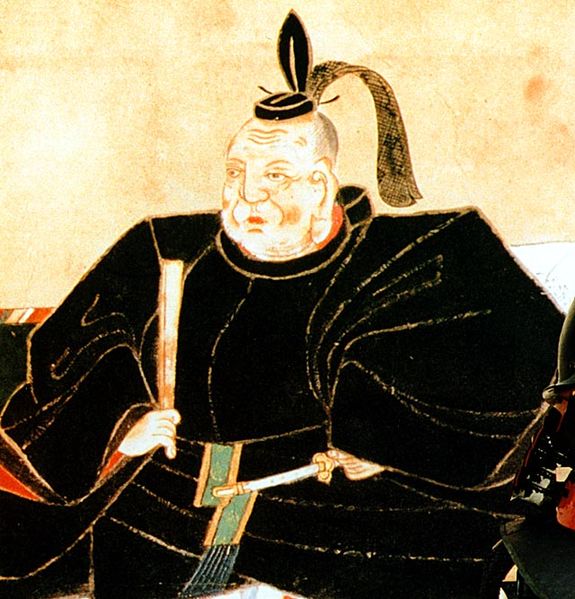 Tokugawa Ieyasu.
Tokugawa Ieyasu.http://en.wikipedia.org/wiki/Shogun
Japan's emperor, a living, breathing god to the Japanese, resided in Kyoto, limiting himself to ceremonial duties. The state's governing power was vested in the Tokagawa Shogun who ruled imperiously from his palace in Tokyo (Edo). But when the Shogun yielded so readily to the Americans, he lost prestige - which the emperor immediately gained. In fact, many warlords, free at last to express old grievances against the Shogun, rallied around the emperor, recognizing him as the only leader who could rid Japan of all its hated foreigners.
Absorbing the civil authority that had drained from the Shogun, the emperor approved a campaign to harass trading ships. His goal, however, was not to impede commerce, but to gather the support of the xenophobic warlords and to force the permanent dissolution of the shogunate. It worked. The Shogun capitulated, and with him out of the way, the emperor set out to bring Japan out of its feudal existence and to make it a world class power. Embassies were established in key countries, and a host of observers returned home with models and experts to institute the needed renovations. The French oversaw the creation of an army; the British, the creation of a navy. The Dutch contracted to construct bridges and other engineering works. For their educational system, the Japanese used the American model. For their political system they followed the German form - with a Constitution based in part on the vaunted U.S. document. For their penal code they followed the French. Instead of a system of aristocratic Samurai officers and an ad hoc peasant army, the emperor decreed universal military service and the manufacture and training in modern weaponry. The old class system was swept away, and with one imperial decree the entire Samurai class was abolished. On and on the changes came until within a few decades Japan had gone from a feudal society to a constitutional monarchy, from antiquated cottage-industry production to a modern industrial economy. There were schools, colleges, railroads, bridges, factories, shipyards, and ships. Japan's ordinary citizens, free from feudalism's poverty and the brutal caprice of warlords, proudly reveled in the benefits that flowed from an emperor who was, in every sense of the word, heroic. Their devotion to him was absolute.
Japan's population, in tandem with its burgeoning productivity, needed land, raw materials, and commercial markets. All of the necessary conditions - the ego inflation, the hero worship, and the propaganda that instilled and reinforced the notion that the Japanese were a separate race of superior human beings - were in place. The Japanese looked at the "inferior" nations located nearby and evaluated them accordingly. They sincerely believed that they were doing these nations a favor by extending to them the enlightened reign of their emperor. And naturally, everyone would benefit from the importation of Japanese products. Imperialism was an act of kindness, and if people were too stupid to understand that, well... they should expect a few unfortunate consequences.
Okinawa fell first, then Korea - and when China objected, a war with China that resulted in China's losing Formosa (Taiwan), the Pescadores Islands, and a huge sum of money to Japan. Inroads into Manchuria evicted the Russians, and when Russia objected, came a war with Russia that Japan won in a mere eighteen months. In 1910 Japan formally annexed Korea. In 1914, Japan demanded that Germany vacate areas of northeast China, and when its demand was refused, Japan joined the allies in declaring war on Germany. In a settlement after the war, without Japan's ever firing a shot, it received from Germany the Marshall Islands, the Caroline Islands, and the Marianas. Japan seized Manchuria, making it an "independent" state which was governed by Japan. Exclusive rights to Chinese ports came next.
Access to the resources and markets of subjugated countries did not cure everything. The high cost of warfare seemed mostly to be felt by Japan's poorest citizens whose numbers had disproportionately increased. Large scale emigration solved the problem for Japan, but created one for the workers in the countries that received the immigrants. American workers in California, Washington, and Oregon lost their jobs to the thousands of Japanese immigrants who gladly worked for much lower wages. The American workers fiercely objected to this new round of Asian immigrants. Previously, Congressional action had been taken against Chinese immigration, and the workers wanted the Japanese to be included in these exclusionary acts. The Chinese, however, had been demonized not only for providing cheap labor but for the drug addictions caused by opium trafficking. Neither the Japanese immigrants nor their relatives back home took kindly to being lumped together with the Chinese whom they despised. The virulent insults and the harassment suffered by the immigrants further infuriated Japan. Formal objections to the invective and mistreatment resulted in a compromise: the U.S. would not include the Japanese in the Chinese Exclusionary Act, and Japan would not issue passports to emigrating laborers who had an American destination. The wounds to both sides were deep and would not easily heal.
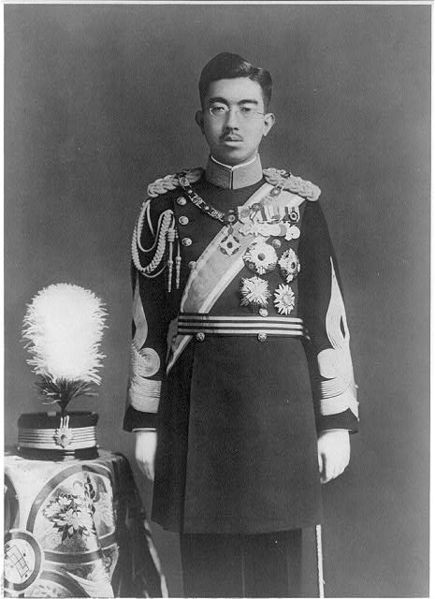 Emperor Showa (Hirohito); April 29, 1901 – January 7, 1989
Emperor Showa (Hirohito); April 29, 1901 – January 7, 1989http://en.wikipedia.org/wiki/Hirohito
Stalled temporarily by the devastating earthquake of 1923, the Japanese war machine continued its conquest of Asia. From its bases in Manchuria, Japan moved into China's north; and in the 1930s commenced to invade Shanghai, Guangzhou (Canton), and most tragically, Nanjing - famous now as the barbaric Rape of Nanking. American interests in these cities were ignored as were American protests. Japan's army moved into French Indochina (Laos, Cambodia, Vietnam); and the U.S., hoping to deter this aggression, curtailed shipments of oil to Japan. This move accomplished nothing but to enrage the Japanese and to spur them to push ahead and seize the oil rich Dutch East Indies and British Malaya (now Indonesia and Malaysia). And as if Washington had been given no clue about Japan's military objectives, Washington was surprised when Japan signed a globe-dividing treaty with Germany.
On November 26, 1941, the U.S. demanded that Japan withdraw its troops from China and Indochina. The Japanese stopped laughing long enough to bomb Pearl Harbor on December 7th.
Ships of the U.S. Pacific fleet, enjoying their stay in Hawaii, were docked in tight convenient rows. The Army Air Corps' planes were also neatly parked outside on the tarmac. Soldiers and sailors who were not sleeping or on routine duty were having breakfast. That nobody was even on alert status in these clearly warmongering days, making easy targets of the 9 ships, 288 airplanes, and 2400 men who were lost that Sunday morning, is probably the most infamous event of that "date that will live in infamy." Within hours the Japanese bombed the Philippines and other locations of strategic importance. Finally, it dawned on isolationist Washington that the Japanese really were at war with us. (If I remember correctly, Costa Rica declared war on Japan six hours before we did.)
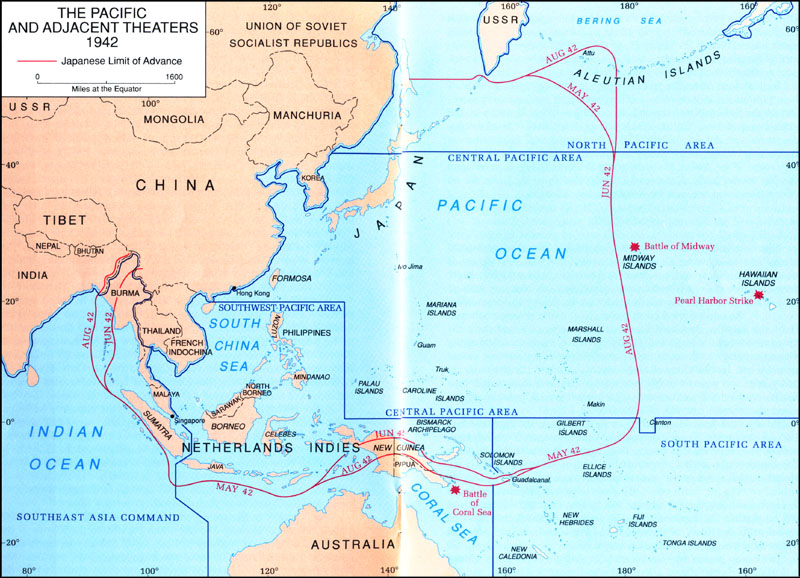 "The Pacific Theater in August, 1942" http://en.wikipedia.org/wiki/Pacific_War
"The Pacific Theater in August, 1942" http://en.wikipedia.org/wiki/Pacific_War
The news the Japanese people received had been filtered to remove anything that might have a demoralizing effect. Nothing was allowed to disturb the preposterous notion that Japan was conducting a just and honorable war; that it had a divine mandate to open markets and to raise the standard of living throughout Asia; to free Asian peoples from the oppressive exploitation of non-asian colonial powers; and to help the Chinese to become civilized. By taking actions that were intended to thwart these noble aims, the U.S. and U.K. had made themselves enemies of progress and would have to be punished. Indeed, the bombing of Pearl Harbor was so justified to them that even to this day Japanese tourists go out to the Arizona Memorial and proudly photograph the ship that clearly lies beneath the surface.
It is true that in the early days of the war, some of our military actions tended to give credence to the Japanese belief that we were a nation of oafs. For example, most strategists, looking at a map of the Pacific, would have suspected that the Japanese would intend to occupy the Aleutian Islands. Yet, we left them undefended, and the Japanese easily invaded and established bases on Attu and Kiska islands.
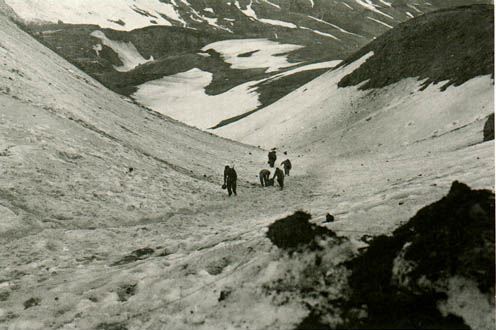 American troops hauling supplies on Attu in May 1943. Their vehicles could not move across the island's rugged terrain.
American troops hauling supplies on Attu in May 1943. Their vehicles could not move across the island's rugged terrain.http://en.wikipedia.org/wiki/
Battle_of_the_Aleutian_Islands.
Noted for its wretched climate - bitter cold, ferocious wind, dense fog that lifted for only ten days a year, and total lack of vegetation except for its surface of knee-deep, slimy tundra, Attu was the scene of the second most costly battle of the war - (the first being Iwo Jima).
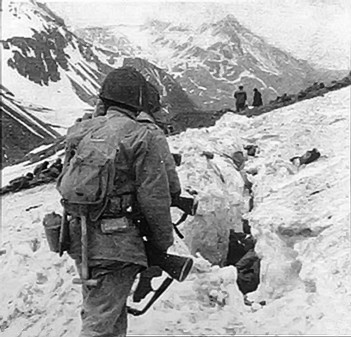 US troops negotiate snow and ice during the battle on Attu in May, 1943.
US troops negotiate snow and ice during the battle on Attu in May, 1943.http://en.wikipedia.org/wiki/
Battle_of_the_Aleutian_Islands.
Canadian and American forces - the latter being partly comprised of men who had trained for desert warfare in southern California and who were dressed for such climate conditions, too, landed on the island on which anything with wheels was useless. The Japanese, wearing camouflage white, occupied the snowy hilltops and easily picked off the freezing Americans - who wore field jackets instead of parkas and leather foot gear instead of waterproof snow boots.
Kiska was worse. After losing Attu, the Japanese, without bothering to tell us, abandoned Kiska. The U.S then repeatedly bombed the deserted island before U.S. and Canadian forces landed in an attempt to retake it. The "battle" resulted in 313 dead (all from friendly fire) and 2500 wounded, sick, or frostbitten.
This kind of news bolstered Japan's sense of divine invincibility. The truth - which they were never told - was that seven months after Pearl Harbor, Admiral Nimitz's genius and a lot of luck had sealed Japan's fate in the war's most decisive battle, the Battle of Midway. Among Japan's losses were four aircraft carriers and 200 of its best pilots.
The powerful irrationality of the combination - ego inflation, hero worship, and a suitable enemy - can be seen in Japan's fanatical refusal to surrender. (In June 1945, the final battle of the war, Okinawa, had cost the U.S., U.K., Canada, Australia, and New Zealand a total of 50,000 casualties, 12.500 of them combat deaths, while Japan's military sustained 66,000 dead or missing in action. A fifth of the island's civilian population was also killed.) Japan, driven from all the territories it had invaded, its cities subjected to daily bombings, its navy mostly at the bottom of the Pacific, its military death toll approaching 1,750,000 men, was reduced to using what was left of its air force to sending a generation of young men to their deaths in kamikaze suicide attacks. In July, the Japanese Army, short of food and other essential supplies, gathered to defend its southernmost homeland islands against an impending invasion. The Allies demanded that Japan surrender unconditionally. In what was and still is incomprehensible, Japan refused.
To Harry Truman, too many men had already died combating this insanity - U.S. Pacific military casualties alone totaled 108,207 killed; 248,316 wounded and MIA. A few weeks earlier, the first test of an atomic weapon was carried out successfully in New Mexico. No one knew whether the assembled parts of the second device would explode when dropped from an airplane; but Truman considered it worth trying. The targets were those of opportunity - weather, distance, and defensive measures determining. The bomb exploded nearly half a mile above Hiroshima on August 6th. The Allies again demanded unconditional surrender. Incredibly, Japan still refused. Truman ordered a second attack. This bomb exploded a quarter mile above Nagasaki. After that, Japan surrendered, even agreeing to one bizarre stipulation: the Emperor had to inform his subjects that he was not a god.
No group of people is immune to the contagion of jingoism, zealotry, racial primacy, hero worship, or grandiosity. A democracy's system of checks and balances can usually manage the infection within its own borders; but, as we and our allies discovered in the months leading up to WWII, when an alien group of infected fanatics seeks to destroy and conquer that democracy, appeasement doesn't cure or contain anything; and an isolationist mentality only serves to put an intended victim in temporary quarantine while giving free range to the vector of the disease.
The Pacific war had nothing to do with apostatic Buddhists. Moreover, given Japan's unassailable belief in the rectitude of the divinely ordained mission it had undertaken, it is a certainty that if Japanese Zen masters had martyred themselves in the cause of peace, Buddhism would have been outlawed. A priest does not have many choices. When his congregation is at war, he does not undermine their confidence and efficiency by telling them how immoral they, their cause, and their leaders are. He reassures and comforts them and their families and offers prayers and religious services for their welfare. It is unrealistic to suppose that they would ever do otherwise.
To end on a happier note, the Emperor's radio announcement of Japan's surrender, contained a line that set a very high bar for understatement. I don't think it has ever been equalled. "... the war situation has developed not necessarily to Japan's advantage."

